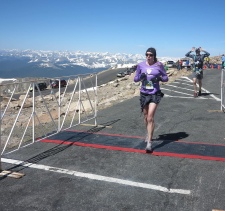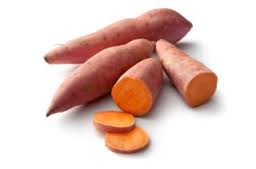 I’m always paranoid about getting sick during the week or two before a big race. And in the past I have gotten sick during hard training cycles or immediately after a hard race. Moderate amounts of exercise are generally thought to help boost the immune system, but when you are training hard and long, such as for a marathon, that doesn’t always seem to be the case. So what’s the deal?
I’m always paranoid about getting sick during the week or two before a big race. And in the past I have gotten sick during hard training cycles or immediately after a hard race. Moderate amounts of exercise are generally thought to help boost the immune system, but when you are training hard and long, such as for a marathon, that doesn’t always seem to be the case. So what’s the deal?
Turns out that longer duration exercise impacts the immune system in several ways. One of the main issues is that stress of any kind, including exercise, stimulates the body to produce cortisol and other stress hormones which suppress the immune system. In small amounts your body adapts to the stress and comes back stronger, but it doesn’t always get a chance to do that when in the peak of training for an endurance event. Additionally, studies have found a significantly reduced amount of killer cells, a type of white blood cell that helps fight invading pathogens, in runners who just ran a half marathon. Those cells remained reduced for up to 24 hours, suggesting that runners are at an increased risk of infection in the day or so after a race. Other studies have hypothesized that athletes are most vulnerable for up to 72 hours after a race or hard workout.
So what’s a PR seeking athlete to do?!
Of course many of the main recommendations for runners to stay healthy are the same as for the general public:
- Limit exposure to sick people (as much as possible at least).
- Wash your hands frequently and thoroughly (remember to sing Happy Birthday). Use hand sanitizer if soap and water are not available.
- Avoid touching your eyes, nose, and mouth, where germs can easily get into your body.
- Manage other possible stressors in your life. Practice yoga or meditation or even seek out a therapist if you feel particularly stressed about other aspects of life.
- Make sure you are getting plenty of sleep at night. Studies show a decrease in immune function with <6 hours of sleep a night. Athletes should probably aim for 8-10 hours.
Additionally, athletes should:
- Make sure you are taking rest days in your training cycle.
- Build up your mileage at an appropriate rate to minimize added stress.
- Limit your post race high fives and handshakes (if you’re really worried).
You should also pay attention to your nutrition for improved immune function:
- Eat a well balanced diet.
- Fuel adequately during workouts and training sessions. If you are running longer than 90 minutes make sure you are fueling yourself with adequate carbohydrate (30-60 grams per hour is the general recommendation but it really depends on the person so consult a Sports RD!). When your body does not get enough carbohydrate during prolonged exercise cortisol and other stress hormone levels are raised more than if you fuel properly.
- Make sure you are practicing good recovery by having a recovery snack that contains carbohydrate and protein within 30 min of finishing tough training sessions and races.
- Hydration is also important, as water helps flush out the system. Your urine should be pale yellow to clear.
- Include plenty of fruits and veggies in your diet. Antioxidants found in fruits and veggies help fight free radical damage. The vitamins and minerals help support the immune system. “An apple a day keeps the doctor away” didn’t come from nothing!
- Make sure you are getting adequate protein in your diet. Aim for 1.2-1.6 grams of protein per kilogram of body weight per day. For a 150 lb athlete that would be 82-109 grams of protein each day.
- Make sure you are getting plenty of vitamin A, vitamin E, vitamin C, and zinc, as these are key players involved in maintaining immune health. It’s best not to rely on a supplement, so focus on diet first. Try strawberries for vitamin C, sweet potatoes for vitamin A, almonds for vitamin E, and pumpkin seeds for zinc. Or just try the recipes below!
- Consider probiotics. You gut is really one of the first lines of defense for your immune system, so make sure it is healthy and happy.
Add a protein to these two recipes and you have a complete immune boosting meal!
Spinach Salad with Strawberries and Pumpkin Seeds
(Makes 1 salad)
1-2 cups spinach, washed and bite sized
1 TBSP pumpkin seeds (out of the shell!)
½ cup strawberries, quartered
1 oz Goat or Feta cheese
½ TBSP olive oil mixed with ½ TBSP balsamic vinegar
Roasted Almond Sweet Potatoes (from the Almond Board of California)
(Makes 6 servings)
4 medium sweet potatoes, peeled and cut into 1 inch cubes
3 TBSP olive oil
4 large garlic cloves (also thought to help boost immunity!), minced
1/3 cup fresh thyme leaves
½ tsp kosher salt
½ cup slivered almonds
Preheat oven to 450 degrees. In a large mixing bowl, combine all the ingredients and toss. Arrange potato slices into a single layer on a heavyweight rimmed baking sheet or in a 9×13 inch baking sheet. Place on the top rack of the oven and roast until tender and slightly browned, about 40 minutes. On another baking sheet, spread out the slivered almonds. Place in the oven and toast until lightly browned, about 8-10 minutes. Remove the almond baking sheet and the sweet potatoes. Mix together in a serving bowl and serve warm.
Stay Healthy!
